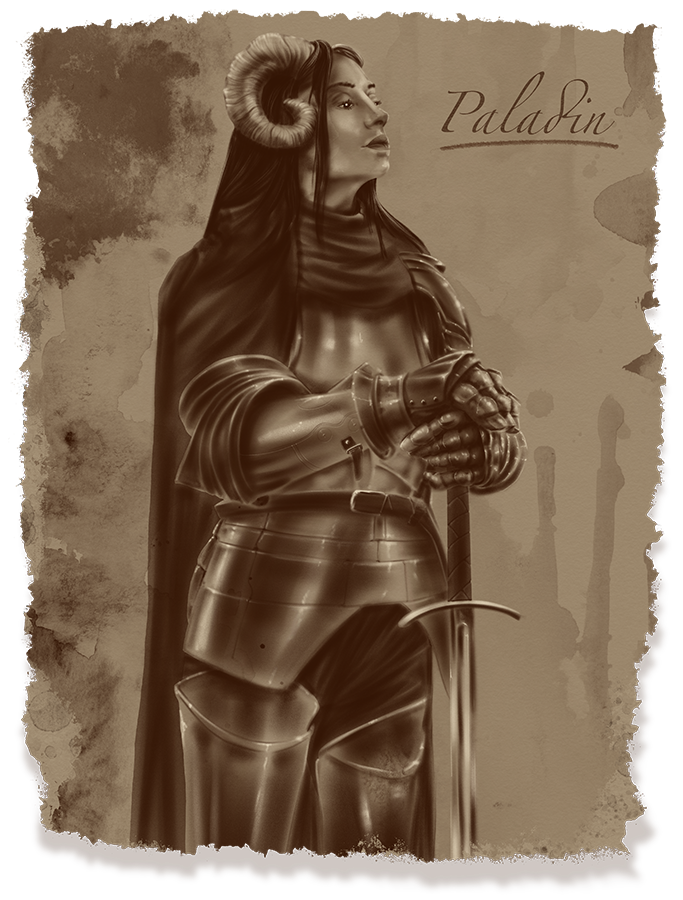Paladin
At a glance:
A beacon of hope, faith, or dread among the fray, Paladins are direct representations of higher powers upon the field, boosting allies and sapping enemies with their mere presence.
A beacon of hope, faith, or dread among the fray, Paladins are direct representations of higher powers upon the field, boosting allies and sapping enemies with their mere presence.
Type: Hybrid
Primary Stat: Willpower
Secondary Stat: Might
Casting Method: Verbal
Toughness Rating: 5
Primary Stat: Willpower
Secondary Stat: Might
Casting Method: Verbal
Toughness Rating: 5


